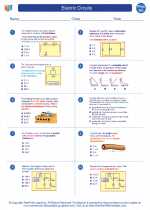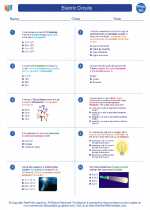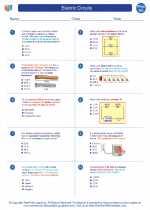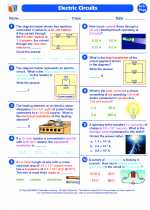Electric Circuits -> conduction
Conduction
Conduction is the process by which heat or electricity is directly transmitted through a substance when there is a difference of temperature or of electrical potential between adjoining regions, without movement of the material as a whole.
Conduction of Heat
In the context of heat transfer, conduction occurs when there is a temperature difference between two parts of a solid, or between a solid and a fluid, and heat is transferred through the collision of particles. The particles with higher kinetic energy collide with particles of lower kinetic energy, transferring energy and increasing the overall temperature of the material.
Conduction of Electricity
In the context of electricity, conduction refers to the flow of electric charge carriers through a conductor. In conductors, such as metals, the outer electrons of the atoms are loosely bound and are free to move through the material, allowing for the transfer of electric charge.
Study Guide
- Understand the concept of heat conduction and how it occurs in solids and fluids.
- Learn about the factors that affect the rate of heat conduction, such as the thermal conductivity of materials and the temperature gradient.
- Explore the applications of conduction in everyday life, such as thermal insulation, cooking, and electronic devices.
- Study the principles of electrical conduction, including the behavior of conductors, insulators, and semiconductors.
- Understand Ohm's law and how it relates to the conduction of electricity.
- Practice solving problems related to conduction of heat and electricity to reinforce understanding of the concepts.
By mastering the principles of conduction, you will gain a deeper understanding of how heat and electricity are transferred through materials, and how these processes impact various aspects of our daily lives.
.◂Physics Worksheets and Study Guides High School. Electric Circuits

 Worksheet/Answer key
Worksheet/Answer key
 Worksheet/Answer key
Worksheet/Answer key
 Worksheet/Answer key
Worksheet/Answer key
